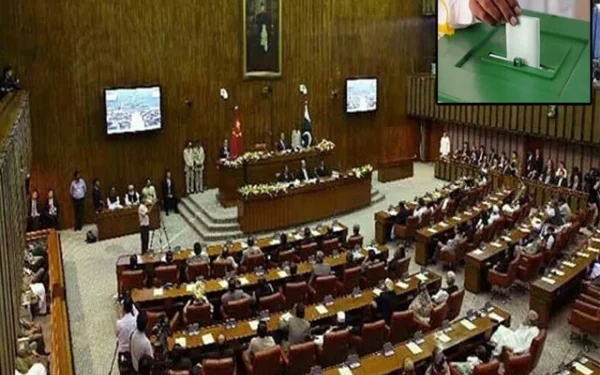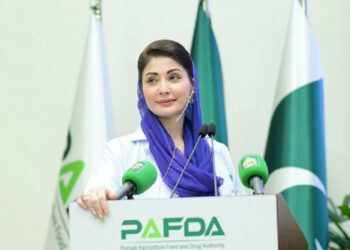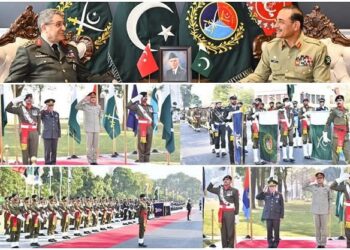Peshawar – As Pakistan Tehreek-e-Insaf (PTI) finalizes its candidates for the upcoming Senate elections, controversy has erupted over the party’s priority list, which is seen to favor influential personalities over long-time ideological workers. The decision has drawn criticism from within the party’s ranks, particularly in Khyber Pakhtunkhwa, where party activists feel alienated and betrayed.
This growing discontent has cast a shadow over PTI’s internal unity, particularly ahead of a crucial election that could shape the party’s future influence in the Senate, Pakistan’s upper house of Parliament.
Background: Senate Elections and PTI’s Stakes
Pakistan’s Senate elections, scheduled every three years for half of the 100-member chamber, are pivotal in determining legislative control. These elections are not conducted by direct public voting but by provincial assemblies, giving ruling parties a strong edge based on their numerical strength in each province.
In the current cycle, PTI is expected to secure four out of the seven general seats from Khyber Pakhtunkhwa due to its dominant position in the provincial assembly. The party’s ability to choose and prioritize candidates for these seats has now become a point of contention.
The Priority List: Favoring Influence Over Loyalty?
According to PTI sources and internal party documents, the official priority list of candidates for the Senate general seats from KP includes the following names:
- Murad Saeed – Former Federal Minister for Communications
- Faisal Javed Khan – Prominent media figure and a close aide of PTI founder
- Mirza Afridi – Businessman-turned-politician with financial clout
- Noor-ul-Haq Qadri – Former Religious Affairs Minister
- Faizur Rehman – A relatively low-profile addition
Conspicuously missing from the list is Irfan Saleem, President of PTI Peshawar District and a long-time party loyalist known for his grassroots connections and unwavering ideological support.
This omission has caused serious unrest among PTI’s ideological workers, many of whom view the party’s current leadership as betraying its founding principles of merit, transparency, and ideological alignment.
Protest Fallout: Irfan Saleem’s Public Dispute with Barrister Saif
Sources within the party suggest that Irfan Saleem’s exclusion from the Senate priority list is linked to his recent protest against Barrister Saif, a close aide of KP Chief Minister Ali Amin Gandapur.
During a party protest in Peshawar, Irfan Saleem and several other PTI workers chanted slogans against Barrister Saif, accusing him of favoritism and undermining grassroots leaders. The protest, though localized, highlighted growing dissatisfaction with the provincial leadership’s disconnect from ideological workers.
In the aftermath, Saleem’s name was reportedly removed from the shortlist, raising concerns of political retaliation rather than merit-based exclusion.
Reactions from Party Workers: Disappointment and Disillusionment
Many PTI workers, especially those active since the early 2010s, have taken to social media platforms and WhatsApp groups to voice their anger. Some are threatening to boycott campaign activities, while others have submitted letters of protest to the party’s central secretariat.
A senior PTI activist in Peshawar remarked anonymously:
“We stood by Imran Khan in his toughest times. We were baton-charged, jailed, and humiliated. Now when it’s time to reward loyalty, the party chooses billionaires and TV celebrities.”
The sentiment is that the founding vision of PTI—rooted in transparency, justice, and the uplift of common people—is slowly being replaced by political expediency and elite consolidation.
The Role of Murad Saeed and Faisal Javed
The inclusion of Murad Saeed and Faisal Javed as top preferences has also sparked debate. While both are seen as loyalists of the PTI founder and have mass appeal, critics argue that their Senate nominations ignore the regional balance and do not reflect internal democratic practices.
Murad Saeed, once a popular youth leader, has remained largely absent from active politics following PTI’s 2023 downfall and subsequent legal challenges faced by its leadership. Faisal Javed, on the other hand, is known more for his media presence than any constituency work.
Their selection is perceived as a move to retain media-savvy faces in the Senate rather than empowering party organizers who mobilized ground support during difficult times.
Money Offers and Vote Buying Allegations
Adding further complexity to the issue are allegations of bribery and vote buying. According to some PTI lawmakers, opposition candidates have offered money in exchange for votes in the upcoming Senate elections.
KP Chief Minister Ali Amin Gandapur has reportedly taken the matter seriously and has asked for a formal report from PTI’s members of the provincial assembly.
These claims echo past controversies surrounding Senate elections in Pakistan, which have often been marred by allegations of horse-trading, vote manipulation, and lack of transparency.
Analysts’ Views: Internal Divide and Future Implications
Political analysts believe that this episode reflects a deeper crisis within PTI, where the central leadership is increasingly dependent on electable figures, businessmen, and celebrity politicians while marginalizing original ideological cadres.
Dr. Ayesha Ghaus, a political analyst from Islamabad, said:
“This is a litmus test for PTI. The decisions made now will determine whether it remains a movement-based party or fully transitions into a conventional political machine.”
She added that overlooking loyal activists like Irfan Saleem may lead to long-term disillusionment, especially at a time when PTI is under immense political and legal pressure.
The Bigger Picture: Senate Control and PTI’s Legislative Strategy
PTI is not just seeking symbolic wins—it needs solid legislative presence in the Senate to counter laws introduced by the current federal coalition and to resist any constitutional amendments that could further marginalize the party.
Having more Senators also means greater representation in key committees, which are essential for parliamentary oversight, budgeting, and accountability. Hence, the selection of candidates carries far-reaching consequences beyond the KP province.
Conclusion: A Party at the Crossroads
As PTI prepares for the 2025 Senate elections, it faces a critical choice between ideological consistency and political expediency. While the party may secure the expected number of Senate seats from KP, the internal backlash over the priority list signals a deeper identity crisis.
Unless the leadership addresses the grievances of its grassroots workers and makes room for internal democracy, the party risks losing the very base that once defined its political rise.
With just weeks left until the polls, all eyes are now on whether PTI will reconsider its nominations, or whether the current list will cement a new phase of top-down politics in what was once Pakistan’s most ideologically driven political movement.

























